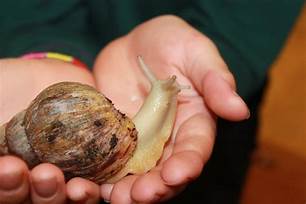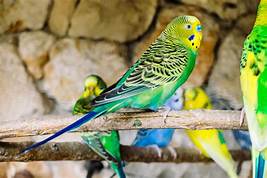Can You Have a Pet Snail?
Snails are fascinating creatures that can make interesting pets. They are relatively easy to care for and can provide hours of entertainment. But before you decide to get a pet snail, it's important to do your research and make sure that you are prepared to provide the proper care for your new pet.

Benefits of Having a Pet Snail
There are many benefits to having a pet snail. Here are just a few:
1. Snails are low-maintenance pets. They don't require a lot of space, food, or attention. This makes them ideal for people who are busy or who live in small apartments.
2. Snails are relatively inexpensive. You can find a pet snail for a few dollars at most pet stores. This makes them a great option for people who are on a budget.
3. Snails can be very entertaining. Watching snails move around their enclosure or eat their food can be very relaxing and enjoyable.
Things to Consider Before Getting a Pet Snail
Before you decide to get a pet snail, there are a few things you should consider:
1. Snails are not cuddly pets. They don't like to be held or played with. If you are looking for a pet that you can interact with, a snail is not the right choice for you.
2. Snails need a specific habitat. Snails need a warm, humid environment to thrive. You will need to provide your snail with a terrarium or other enclosure that meets these requirements.
3. Snails can live for a long time. Some snails can live for up to 10 years. This is a long time commitment, so you need to be prepared to care for your snail for its entire life.
How to Care for a Pet Snail
If you are prepared to provide the proper care for a pet snail, here are some tips:
1. Choose the right type of snail. There are many different types of snails that can be kept as pets. Some of the most popular species include the African land snail, the garden snail, and the mystery snail.
2. Provide a suitable enclosure. The type of enclosure you need for your snail will depend on the species of snail you choose. In general, snails need a terrarium or other enclosure that is at least 10 gallons in size. The enclosure should be kept warm and humid, and it should provide your snail with plenty of space to move around.
3. Feed your snail a healthy diet. Snails are herbivores, and they eat a variety of plants and vegetables. You can feed your snail a commercial snail food, or you can provide it with fresh fruits, vegetables, and leaves.
4. Keep your snail's enclosure clean. Snails produce a lot of waste, so it is important to clean their enclosure regularly. You should spot-clean the enclosure daily and do a full cleaning once a week.
5. Take your snail to the vet for regular checkups. Even though snails are generally healthy animals, it is important to take them to the vet for regular checkups. This will help to ensure that your snail is healthy and that it is receiving the proper care.
Declaration: All article resources on this website, unless otherwise specified or labeled, are collected from online resources. If the content on this website infringes on the legitimate rights and interests of the original author, you can contact this website to delete it.



